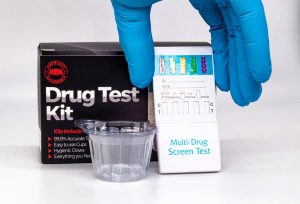
The Montgomery County Fair & Rodeo is a Texas Tradition spanning the spring seasons in our county since 1957. Longtime residents remember the days when Spring Break lined up with the fair so 4H kids could show their animals. Then, those kids grew up and started to enjoy all facets of the fair – including the cook off. Even though the fair features a carnival, rodeo, shows, musical acts and more, some of the most fun is spent partying it up in the tents during the cookoff weekend. This can be risky if you don’t plan ahead. Montgomery County Law Enforcement made the most of this during the weekends and arrested over 70 people for DWI.. If you’re one of them, it doesn’t mean you’re cooked. You can take action and the most urgent action is preventing your license from being suspended automatically.
During the rodeo season, Montgomery County Law Enforcement typically increases their DWI enforcement efforts. Additionally, the Montgomery County District Attorney’s Office typically increases their No Refusal blood draw operations. This means they seek warrants when the Accused declines to offer a blood test. Refusing a blood draw not only impacts enforcement’s DWI investigation, it can also impact your driver license. Through an Administrative License Revocation Hearing, the Texas Department of Public Safety attorney will try to suspend your license for a period of 180 days for refusing a blood or breath test. This information is listed in the Statutory Warning (DIC-24) provided at the time of the arrest.
Whenever an Accused is charged with a crime related to driving while intoxicated, they are read the DIC-24. This is the form communicating the Accused’s rights and the requests of the investigating officer for a sample of their breath or blood. Oftentimes during this part, emotions run high and time passes by at the rate of 100 miles per second as the cop’s lights twirl red and blue and anxiety courses through the body. All of this to say, if you were arrested for DWI, you probably don’t remember this form. The true significance lies in the part that reads, “You may request a hearing on the suspension or denial. This request must be received by the TXDPS at its headquarters in Austin, Texas, no later than 15 days after you receive or are presumed to have received notice of suspension or denial.” If TXDPS fails to receive the request for hearing within the 15 days, the Accused’s driver license will be suspended. Typically the suspension takes effect 45 days from the date of the arrest.
 Conroe Criminal Lawyer Blog
Conroe Criminal Lawyer Blog









